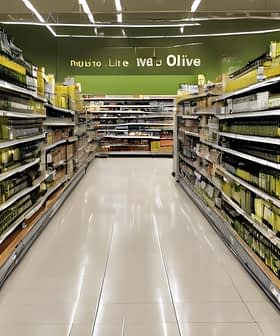The International Olive Council (IOC) predicts olive oil production for this harvest season will be somewhere between the last one (the worst in nearly twenty years), and the one before that (the best of all time).
If it seems the Madrid-based intergovernmental organization is not exactly going out on a limb in its latest forecast, it reflects the high level of uncertainty about the 2015/2016 harvest that will begin next month and the difficulty in predicting what will happen with so many moving parts across vast regions, the Council said in its August newsletter.
The IOC pegged production for the 2015/2016 harvest at “more than 2.5 million tons,” or, in other words, it won’t be the worst harvest in 15 years. The Council declined to define an upper limit to its forecast. Last year’s dismal production total was 2.4 million tons.
See Also:World Olive Oil Production Figures (PDF)
In making its prediction for the coming harvest the IOC made no mention of Italy, which last year had one of its worst seasons on record, and it was unclear what data from other major producers like Tunisia and Greece were factored into the forecast.
As for Spain, the world’s largest olive oil producer, the picture is far from clear either. An expert with AEMO, the Spanish Association of Olive Municipalities, José María Penco, said an analysis of the agro-climatic variables that affect fruit development point to a wide variation between irrigated and non-irrigated farms, and all that can be said so far is that we are not looking at a bumper crop this year.
A more accurate measure of the harvest would require an on-the-ground survey of farms but, Penco explained, such a system is only in place in the Spanish province of Andalusia, which had not yet released its figures.
Going on climatic data alone, Penco explained to the IOC, it doesn’t look good. In July, temperatures reached 40 °C (104 °F) on more than twenty days in southern Spain causing fruit that had not yet completed the stone hardening stage to wither away and fall to the ground.
For his part, Penco places an upper limit for this year’s production in Spain at 1.2 million tons, a marked improvement over last year’s 825,000 tons, but a long way from its 2013/2014 record of 1.78 million.
All this uncertainty along with a dwindling supply of last year’s stock has continued to push olive oil prices higher around the world. Prices for extra virgin, as well as refined oils from Spain, Italy, Greece and Tunisia are all at or near record levels.








